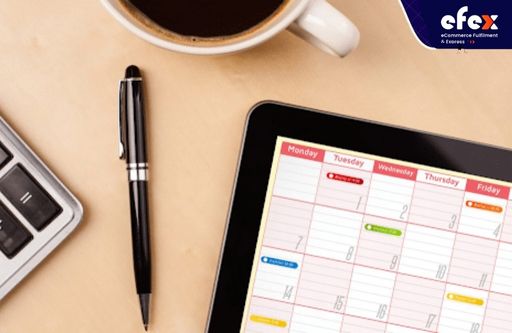
More Helpful Content
For each product, an MRP (standing for materials requirement planning) record is created that essentially lists the gross criteria, net prerequisites, scheduled receipts, anticipated current balance, planned purchase receipts, and planned purchase releases.
The Open Order row in an MRP record displays the quantity ordered as well as the anticipated completion date for these orders. One of the elements in MRP data is scheduled receipts. Scheduled receipts specify the due date for any pending transactions or ongoing renewal purchases for a given item.
A scheduled receipt means that products must be received in a specific time frame. It is similar to an old order that will come on a certain date.

When a supplier undertakes to deliver a certain amount of merchandise at a specified time, this is known as a "scheduled receipt."
👉 Read More: What Is The Chase Production Strategy?
A small business that makes handcrafted chocolate is well known and in great demand. Every month, the business manufactures ten boxes of chocolates. This needs 50 kilos of flour each month to do that. But during a certain month, there was a higher demand for chocolate because of celebrations.
As a result, the company consumed all of the remaining flour and sold all of the chocolates. Additionally, they placed a purchase order with the supplier for 20 kilograms of flour, and it was due to be delivered in two weeks.
Afterward, we figure out the net prerequisites for the following month. But first, the 50 kilos of the total required are added and deducted from the total on hand and scheduled purchases. The amount of flour that was still available was zero because it had all been used.
👉 Read More: What Is Acceptable Quality Level? Formula And Example
Therefore, the net amount of flour needed in the upcoming month will be 30 kilos = 50 kilos - 20 kilos Suppose that the business has consumed all the available flour in addition to the 30 kg of back-ordered flour.
What are the anticipated net criteria for the upcoming month? Due to firms' spending exceeding their revenue, 60 kilograms (50 kilograms - ( - 30 kilograms + 20 kilograms)) is the net demand for the upcoming month. The projected transaction receipts, or net criteria, of a business, are established once netting the existing and scheduled inflows from the gross.
The outcome of this netting is sometimes referred to as the estimated available balance. If the anticipated available balance is,
👉 Read More: What Is Landed Cost: Meaning And How To Calculate It
There are no anticipated net prerequisites. Nevertheless, if the estimated available balance is less than the designated safety stock, a scheduled order is created. The anticipated order schedule, which is often referred to as projected order receipts, is maintained by the MRP system.
It is merely produced after taking into account all scheduled receipts as well as available inventory for the important period.
Preparing for material requirements is a piece of production scheduling and an effective inventory management system. It delivers necessary materials as actually required and aids in maintaining a balanced stock.

To work effectively, MRP needs three elements in particular. They are records of the production system, inventory condition, and standard capacity management. The MRP's primary goals include:
A computerized inventory, a planned management system, and scheduled receipts are all crucial components of material requirement planning. MRP's scheduled receipts are incredibly effective in systems with intricate workflows, intricate billing structures, and several processing phases.
👉 Read More: What is Level Production Strategy? Example And Formula
The flawless operation of the system is ensured by MRP, which makes sure that all necessary components are always available in the right proportions. The following are additional elements that are crucial to material need planning:
👉 Read More: What is Planned Order Release?
So you have got everything about scheduled receipts in MRP and how they benefit your company. We hope you find this post helpful for you. Thank you for reading.


